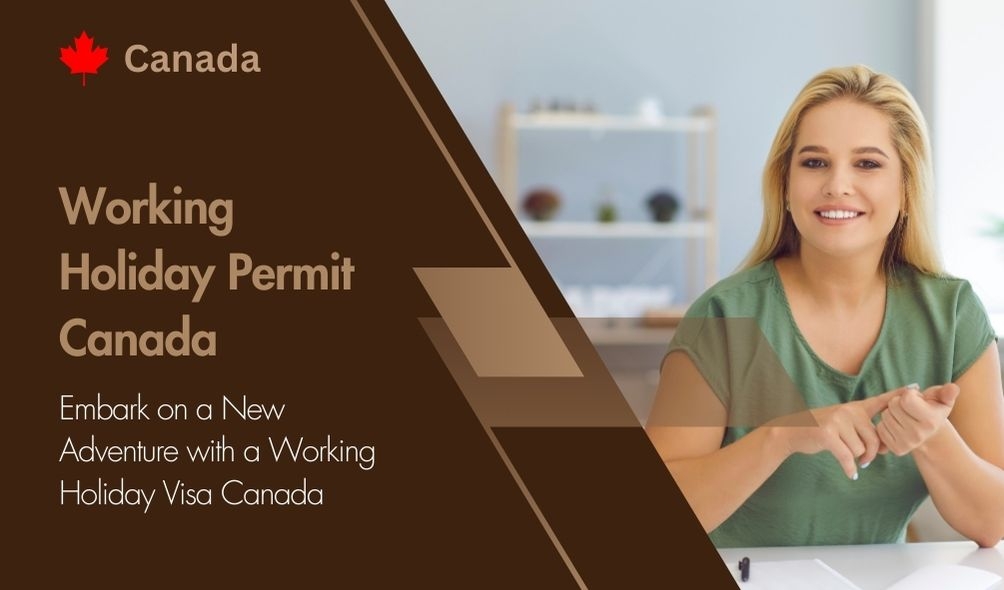Exploring the Working Holiday Visa (Permit) in Canada

Introduction
Canada's Working Holiday Visa, also known as the Working Holiday Permit Canada , offers young individuals from participating countries a unique opportunity to live, work, and explore the Great White North. Part of the International Experience Canada (IEC) program, this visa fosters cultural exchange and strengthens international relationships by allowing participants to immerse themselves in Canadian life while gaining temporary work experience.
Understanding the International Experience Canada (IEC) Program
The IEC program is a collaborative initiative between Canada and various partner countries, designed to facilitate travel and work opportunities for young people. It includes three categories: Working Holiday, Young Professionals, and International Co-op. Each category caters to different needs, from those seeking flexible work and travel experiences to those aiming for professional development or academic internships. The Working Holiday category, in particular, provides the freedom to work for any employer in Canada, making it ideal for those wanting to combine work with travel.
Eligibility Criteria
To be eligible for the Working Holiday Visa Canada, applicants must:
-
Age Requirement: Be between 18 and 35 years old (the specific age range may vary by country).
-
Citizenship: Hold citizenship in a country that has a bilateral agreement with Canada under the IEC program.
-
Financial Proof: Demonstrate sufficient funds (typically CAD $2,500) to support themselves initially in Canada.
-
Health and Security: Undergo a medical examination if required and provide a police certificate to show a clean criminal record.
-
Insurance: Have health insurance coverage for the duration of their stay.
Application Process
The application process involves several steps:
-
Create an IEC Profile: Applicants must first create an online profile on the IEC website, where their eligibility will be assessed.
-
Receive an Invitation: Eligible candidates are entered into a pool, and invitations to apply are issued based on a randomized selection process.
-
Submit the Application: Invited applicants must submit a complete application, including all necessary documents such as proof of funds, insurance, and any required medical or police clearances.
-
Processing Time: The processing time varies but generally takes several weeks to a few months.
-
Receive the Permit: Approved applicants receive an electronic Travel Authorization (eTA) or visa, allowing them to enter Canada and start their Working Holiday.
Conditions of the Working Holiday Permit
Participants must adhere to certain conditions:
-
Work Restrictions: While they can work for any employer, some professions may require additional permits or qualifications, particularly regulated ones like healthcare or law.
-
Duration of Stay: The permit is typically valid for up to 12 months, though the exact duration may vary based on bilateral agreements.
-
Extension and Renewal: The permit is not extendable or renewable. Participants wishing to stay longer must explore other visa options.
Benefits of the Working Holiday Permit
-
Cultural Exchange: Participants can immerse themselves in Canadian culture, engaging with locals and experiencing diverse traditions.
-
Work Experience: The visa offers valuable international work experience, enhancing future career prospects and personal growth.
-
Travel Opportunities: Participants can explore Canada's vast landscapes, from bustling cities to serene natural parks.
-
Personal Development: Living abroad fosters independence, resilience, and problem-solving skills, contributing to significant personal growth.
-
Networking: Participants can build a network of professional and personal contacts, benefiting future opportunities.
-
Enhanced Language Skills: Non-native English or French speakers can improve their language proficiency through immersion.
Additional Considerations
-
Understanding Canadian Work Culture: Familiarity with Canadian work norms, such as punctuality and teamwork, can aid in professional integration.
-
Cost of Living: The cost of living varies across Canada, with higher costs in major cities. Budgeting is essential for managing expenses.
-
Finding Accommodation: Options include renting apartments, shared housing, and short-term rentals. Resources are available to assist in finding suitable accommodation.
-
Tax Implications: Participants may need to file Canadian tax returns and should understand their tax obligations.
Common Challenges and Solutions
-
Navigating Visa Requirements: Thorough preparation and accurate documentation can prevent application delays and complications.
-
Managing Finances: Effective budgeting and financial management are crucial for a successful stay.
-
Adapting to Canadian Life: Seeking support from local communities and using available resources can ease the transition.
Conclusion
The Working Holiday Visa Canada under the IEC program offers a transformative experience, combining cultural immersion, work opportunities, and travel adventures. It enriches participants' lives, broadens their perspectives, and provides valuable personal and professional growth. Whether for cultural exchange, career enhancement, or exploring Canada’s natural beauty, the Working Holiday Visa is a gateway to unforgettable experiences and lasting memories.
- Industry
- Art
- Causes
- Crafts
- Dance
- Drinks
- Film
- Fitness
- Food
- Παιχνίδια
- Gardening
- Health
- Κεντρική Σελίδα
- Literature
- Music
- Networking
- άλλο
- Party
- Religion
- Shopping
- Sports
- Theater
- Wellness
- News


